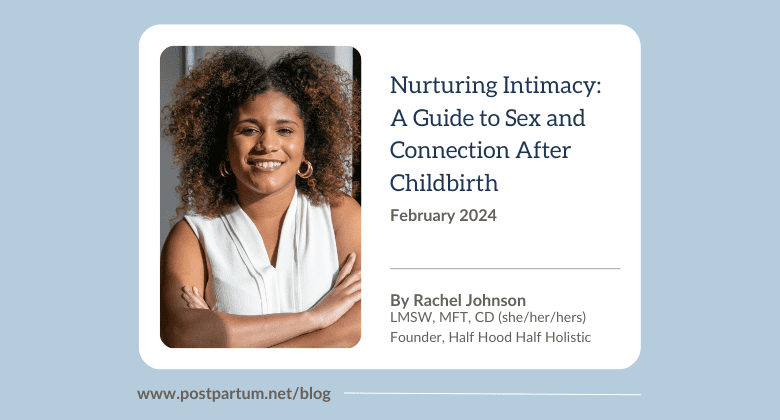Nurturing Intimacy: A Guide to Sex and Connection After Childbirth

Welcoming a new life into the world is a rare and joyful experience, but it also changes a lot in the relationship of the couple. As parents navigate the challenges of caring for a newborn, it’s common for the topic of sex and intimacy to take a back seat. However, fostering a healthy connection during the postpartum period is important for both partners. In this blog post, we’ll explore the physical and emotional aspects of sex and intimacy after childbirth and offer guidance on how couples can navigate this transformative time.
Understanding Physical Changes:
Childbirth causes many physical changes in the body. The recovery process, hormonal fluctuations, and potential physical discomfort can affect readiness for sexual activity. Patience and open communication are key during this time, allowing both partners to understand and respect each other’s needs.
Open Communication:
Effective communication is the foundation of a strong and stable relationship. Openly discussing expectations, fears, and desires can help couples navigate changes in their sexual relationship after childbirth. Honest conversations about physical and emotional well-being, desires, and concerns lay the foundation for rebuilding intimacy.
Redefining Intimacy:
Intimacy is more than sexual activity. During the postpartum period, couples may explore alternative ways to connect emotionally and physically. Hugging, holding hands, and spending quality time together can foster a sense of closeness that goes beyond the physical realm.
Managing Expectations:
It is important for couples to manage their expectations about postpartum sex. Understanding that the journey to physical intimacy can be gradual and different for each couple can help ease the pressure and promote a more relaxed approach to rebuilding the sexual aspect of the relationship.
Looking for Professional Support:
Sometimes, couples may find it helpful to seek guidance from health care professionals or sex therapists who specialize in postpartum issues. Professionals can provide valuable insights, offer coping strategies, and address any concerns or challenges.
Make Self-Care a Priority:
Couples should prioritize self-care to ensure they are physically and emotionally well. Resting, getting enough sleep, and maintaining a healthy lifestyle contribute to overall well-being, which positively influences the ability to connect closely.
Rediscovering Sensuality:
Couples can rekindle the spark in their relationship by rediscovering sensuality. Engaging in activities that promote relaxation, such as massage or a shared bath, can enhance intimacy and create a comfortable environment for both partners.
Navigating sex and intimacy after childbirth requires patience, understanding, and open communication. By recognizing physical changes, redefining intimacy, managing expectations, seeking professional support when needed, and prioritizing self-care, couples can build a foundation for in a stable and satisfying relationship. Embracing traveling together will strengthen the bond between partners and contribute to a harmonious and loving family environment for the newest addition to the family.
Learn More About Perinatal Mental Health
Learn More About PSI Services
Learn more about PSI Trainings





